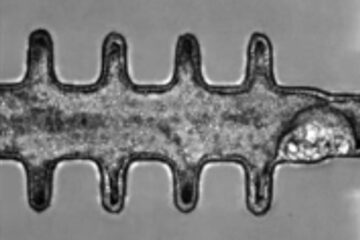More market less poverty, but also more sustainable land use?

Benin is one of the poorest countries in the world. Sustainable land use is therefore even more important so that, for example, soil erosion does not lead to further poverty. Therefore the main question in Gandonou’s doctoral research was to what extent would agriculture on fragile slopes become more sustainable if the farmers were given more possibilities for selling their products and acquiring production resources. The study is based on empirical data collected in 1998 and 1999 in Boukombé in the northwest of Benin.
The results show that in a remote area such as Boukombé, the effects of a closer market on erosion control are marginal. This is partly because many efforts to conserve the soil are already being undertaken, and partly because incomes of farmers in this area remain very low, even if the market is nearby. Gandonou’s research has made it clear that reducing the distance to the market has slight, but positive, effects on the yields of grains and therefore on the attractiveness of soil conservation. Artificial fertilisers plays a key role in this: these can only be used successfully if the subsoil has not been eroded too much and the water runoff is not too strong. This means that a farmer who wants to use artificial fertilisers will also have to take soil conservation measures. To date this study is the clearest example of how soil conservation contributes to an increased yield.
A more accessible market also provides households with more opportunities to grow other, more commercial crops or to undertake other profitable activities. Investments in an improved infrastructure can therefore contribute to improved agricultural returns, and these higher returns induce farmers to invest more in the sustainable use of slopes.
The Ph.D. thesis, ’Sustainable Land Use and Distance to the Market. Micro Evidence from Northern Benin’ was written by Esaïe Gandonou at the Vrije Universiteit Amsterdam and is part of the programme The Agricultural Transition to Sustainable Tropical Land Use financed by the NWO Stimulation Programme Environment & Economy.
Esaïe Gandonou’s research was funded by NWO.
Media Contact
More Information:
http://www.nwo.nl/nwohome.nsf/pages/NWOA_6LJE7M_EngAll latest news from the category: Agricultural and Forestry Science
Newest articles

Solving the riddle of the sphingolipids in coronary artery disease
Weill Cornell Medicine investigators have uncovered a way to unleash in blood vessels the protective effects of a type of fat-related molecule known as a sphingolipid, suggesting a promising new…

Rocks with the oldest evidence yet of Earth’s magnetic field
The 3.7 billion-year-old rocks may extend the magnetic field’s age by 200 million years. Geologists at MIT and Oxford University have uncovered ancient rocks in Greenland that bear the oldest…

Mini-colons revolutionize colorectal cancer research
As our battle against cancer rages on, the quest for more sophisticated and realistic models to study tumor development has never been more critical. Until now, research has relied on…





















